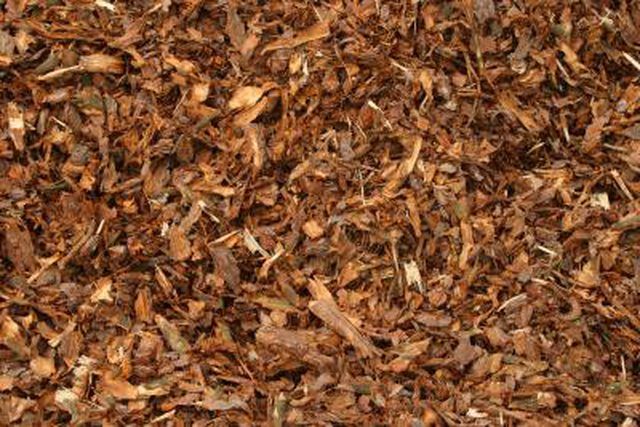Bulbs
Flower Basics
Flower Beds & Specialty Gardens
Flower Garden
Garden Furniture
Garden Gnomes
Garden Seeds
Garden Sheds
Garden Statues
Garden Tools & Supplies
Gardening Basics
Green & Organic
Groundcovers & Vines
Growing Annuals
Growing Basil
Growing Beans
Growing Berries
Growing Blueberries
Growing Cactus
Growing Corn
Growing Cotton
Growing Edibles
Growing Flowers
Growing Garlic
Growing Grapes
Growing Grass
Growing Herbs
Growing Jasmine
Growing Mint
Growing Mushrooms
Orchids
Growing Peanuts
Growing Perennials
Growing Plants
Growing Rosemary
Growing Roses
Growing Strawberries
Growing Sunflowers
Growing Thyme
Growing Tomatoes
Growing Tulips
Growing Vegetables
Herb Basics
Herb Garden
Indoor Growing
Landscaping Basics
Landscaping Patios
Landscaping Plants
Landscaping Shrubs
Landscaping Trees
Landscaping Walks & Pathways
Lawn Basics
Lawn Maintenance
Lawn Mowers
Lawn Ornaments
Lawn Planting
Lawn Tools
Outdoor Growing
Overall Landscape Planning
Pests, Weeds & Problems
Plant Basics
Rock Garden
Rose Garden
Shrubs
Soil
Specialty Gardens
Trees
Vegetable Garden
Yard Maintenance
How to Compost in the Desert
How to Compost in the Desert. Composting using a compost pile is the most efficient way to recycle organic material, including kitchen and garden waste. You can dig organic waste directly into soil, but it will need time to break down efficiently and some organic matter can carry disease. All composting works on the concept that organic waste will...

Composting using a compost pile is the most efficient way to recycle organic material, including kitchen and garden waste. You can dig organic waste directly into soil, but it will need time to break down efficiently and some organic matter can carry disease. All composting works on the concept that organic waste will break down into a rich, natural fertilizer if conditions encourage the growth of microbes and insects that help break down the waste. Although the concept of composting is the same wherever you live, composting in the desert requires special attention.
Things You'll Need
Wire mesh
Framing posts or wooden palettes
Green or dried garden waste
Optional kitchen scraps (no meat or meat sources)
Water
Build a porous container to hold your composting material that is large enough to hold at least a cubic yard. Suggested methods include: using a frame with posts and wire mesh walls; building a contained area with wooden palettes set on their sides; punching holes in a large trash can; or buying any of the diverse compost container models on the market.
Set up your composting container close enough to the house where it is convenient, but far enough away that you wonít attract wildlife. In the desert the sun will help heat up your compost pile, so donít position your compost pile in the shade. The warmer your compost pile gets, the faster the materials will break down into useful compost. A fast-working compost heap will warm to 120 to 140 degrees Fahrenheit in the center.
Gather your organic waste and layer moist products such as green garden material with drier additives such as dry, crispy leaves.
Water the compost heap on a regular basis. If a compost pile dries out, the microbes and insects that help decompose the composting materials will flee or die, and your heap will slow its decomposition. Donít keep the heap wet, but aim for 40 percent to 60 percent moisture retention. With the dry air of desert climates, check your compost pile often to make sure it feels damp.
Turn your compost heap frequently to keep moist and drier materials mixed and to give all of your ingredients a chance to be exposed to the warmest temperatures in the center of the pile. Because desert climates can be hot and dry, turning the materials in your heap is particularly important to keep all the contents decomposing at a similar rate.
Bury food products from the kitchen or garden in the middle of the compost pile where they will attract less attention. Natural desert areas harbor plenty of rodents, but they arenít welcome in your compost pile.
Add compost to your mulch and soil. Desert gardens usually have soil that is either sandy or rocky. Due to the lack of natural growth, desert soils are hungry for organic matter. Adding compost made from your own compost pile will save you the work of hauling off waste from your kitchen or garden and supply you with the perfect soil amendments to make your garden thriveófor free.
Tips & Warnings
Good air circulation is particularly important in any compost pile to keep it healthy and to reduce odor. It is doubly so in the hot environment of the desert.
Avoid adding waste matter from meat and animal products. These tend to smell badly, attract undesirable wildlife and might contain dangerous organisms.